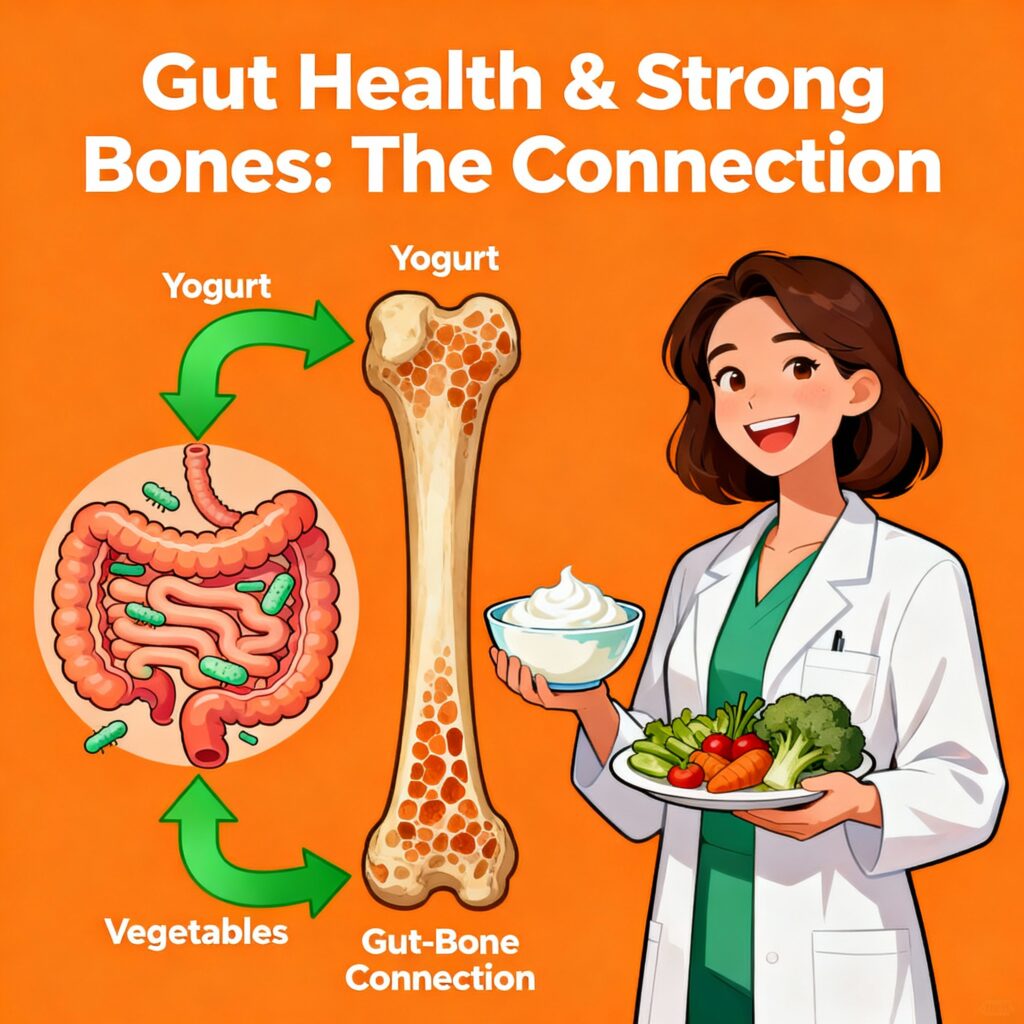New Delhi, October 20:
Each year, World Osteoporosis Day serves as a yearly reminder of the “silent disease” that weakens bone, resulting in increased risk of fracture. For many years we have viewed calcium and vitamin D as the heroes of bone health, but new science is indicating a twist in the storyline — our gut.
Recent research demonstrates a significant biological relationship between the gut and bone strength which is now referred to as the Gut–Bone Axis. This developing understanding of the Gut — Bone Axis suggests that protecting gut health could be as important as a diet rich in bone-supportive nutrients.
The Gut–Bone Axis: A Covert Channel of Communication
The gut can be considered an intricate living environment for trillions of microorganisms — the gut microbiome. These tiny inhabitants do much more than digest food; they communicate with multiple systems throughout the body and affect immunity, metabolism, and even bone remodeling.
This two-way communication of gut microbes and bone cells is what scientists refer to as Gut–Bone Axis. According to Dr Apoorv Dua, Consultant Orthopedics at the Indian Spinal Injuries Center, this connection has important implications for disease processes of the future through prevention of bone loss and general support of bone health.
The Influence of Gut Health on Bone Health
1. Absorption of nutrients
Having a balanced gut microbiome encourages proper absorption of important micronutrients, like calcium, vitamin D, magnesium, and vitamin K, that are necessary for bone development and mineral density.
The gut can be damaged at the intestinal lining and a balanced nutrient-dense diet will not be helpful because nutrients will not be able to reach the bones.
2. Inflammation and Bone Dissolution
Poor gut health is often asymptomatic or the symptoms are not realized to be from the gut or not related to gut health because they are not related to digestion. An imbalanced gut may cause low-grade systemic inflammation, which releases molecules that trigger osteoclastic activity – bone dissolving cells. After some time, this inflammation will influence bone density and risk for fracture can increase, even if you are a young adult.
Short-Chain Fatty Acids (SCFAs): The Bone Protectors
Helpful gut bacteria produce compounds, known as short-chain fatty acids (SCFAs)—butyrate being one of them—that serve a key function in bone balance. SCFAs reduce bone resorption and promote the formation of bone, as if they are chemical messengers that support skeletal stability.
Building Better Bones Through Gut Care
Investing in gut health doesn’t take an extraordinary effort; it takes an ordinary effort.
• Choose foods that are rich in prebiotics and probiotics, like yogurt, fermented vegetables, and high-fiber fruits.
• Reduce processed foods and excess sugar that can himation support gut bacteria.
• Control stress and get enough sleep, since both affect gut functioning and levels of inflammation.
Alongside routine exercise and sunlight exposure, these are the foundations of long-term bone health.












More Stories
How “Lockdown-Level” Emissions Cuts Might Clean Delhi’s Air by 2040
Cyclone Ditwah: IMD Issues Red Alert for Tamil Nadu, Puducherry, and Southern States
Hong Kong Fire Death Toll Climbs to 55; Dozens Still Missing as Blaze Burns Into Second Day